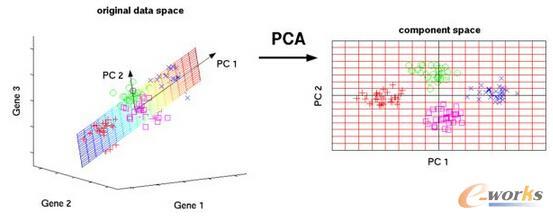Online class-incremental continual learning is a specific task of continual learning. It aims to continuously learn new classes from data stream and the samples of data stream are seen only once, which suffers from the catastrophic forgetting issue, i.e., forgetting historical knowledge of old classes. Existing replay-based methods effectively alleviate this issue by saving and replaying part of old data in a proxy-based or contrastive-based replay manner. Although these two replay manners are effective, the former would incline to new classes due to class imbalance issues, and the latter is unstable and hard to converge because of the limited number of samples. In this paper, we conduct a comprehensive analysis of these two replay manners and find that they can be complementary. Inspired by this finding, we propose a novel replay-based method called proxy-based contrastive replay (PCR). The key operation is to replace the contrastive samples of anchors with corresponding proxies in the contrastive-based way. It alleviates the phenomenon of catastrophic forgetting by effectively addressing the imbalance issue, as well as keeps a faster convergence of the model. We conduct extensive experiments on three real-world benchmark datasets, and empirical results consistently demonstrate the superiority of PCR over various state-of-the-art methods.
翻译:在线类别增量连续学习是连续学习的一项具体任务,其目的是从数据流中不断学习新的类别,而数据流的样本仅会观察一次。然而,这会导致灾难性遗忘问题,即遗忘旧类别的历史知识。现有的基于再现的方法通过以基于代理或基于对比的方式保存和重现部分旧数据,有效地缓解了这个问题。虽然这两种重现方式都很有效,但基于代理的方式会因为类别不平衡问题而倾向于新类别,基于对比的方式由于样本数量有限而不稳定且难以收敛。本文基于对这两种重现方式的彻底分析,发现它们可以互补。在此启发下,我们提出了一种新的重现策略——代理对比再现法(PCR)。其关键操作是将锚点的对比样本替换为对应的代理,并采用对比的方式。这种方式通过有效解决不平衡问题缓解了灾难性遗忘现象,同时保持了模型的更快收敛速度。我们在三个现实世界的基准数据集上进行了大量实验,实验证据一致地表明PCR优于各种现有的最先进的方法。


